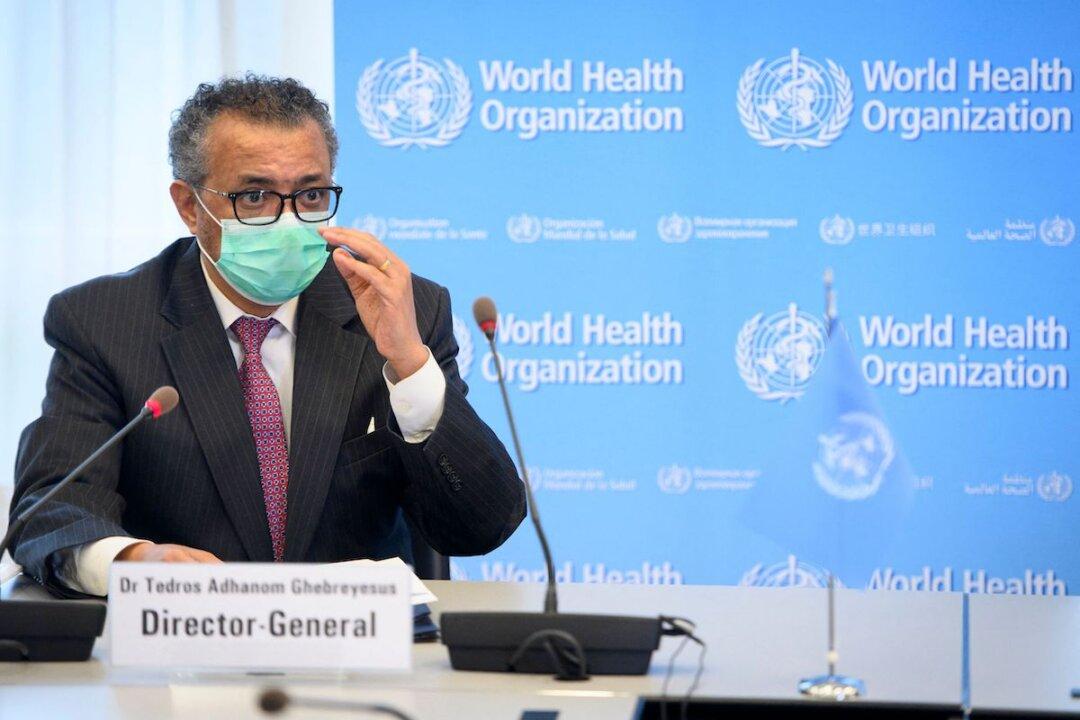The World Health Organization (WHO) on Friday called for an audit of laboratories in Wuhan, China, as part of a second phase of investigations into the origins of COVID-19 after the first phase failed to secure transparency and information sharing from the Chinese regime.
A key priority to moving toward a deeper investigation into the origins of COVID-19 will include “audits of relevant laboratories and research institutions operating in the area of the initial human cases identified in December 2019,” WHO chief Director-General Tedros Adhanom Ghebreyesus said during a closed-door meeting.





